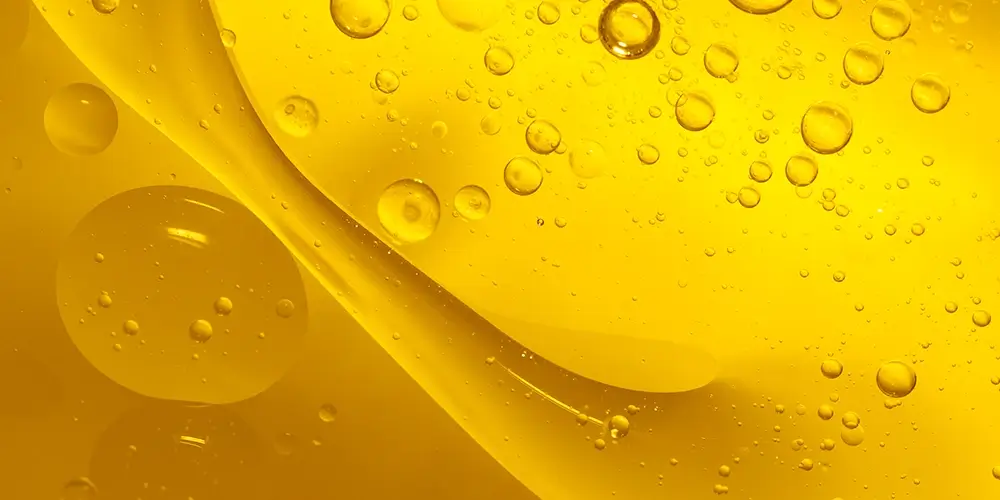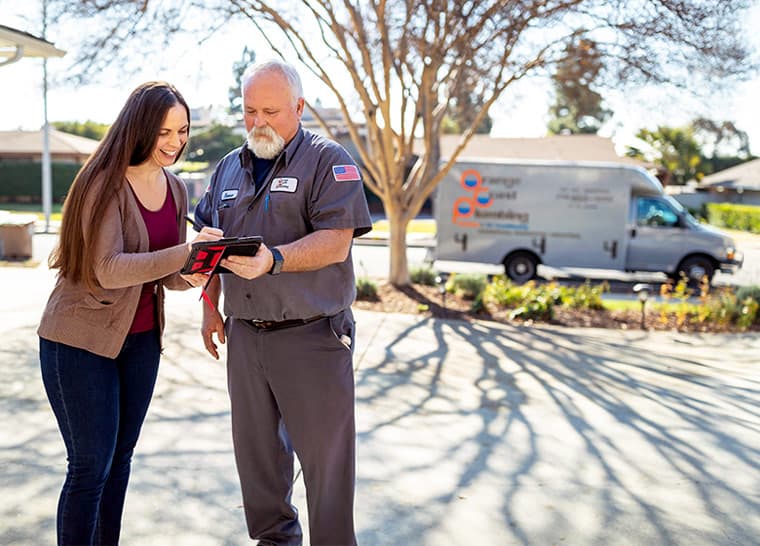Let’s set the scene.
You stumble into the bathroom. Another sleepless night — maybe a nice hot shower will clear the cobwebs.
You open the spigot and wait for the steam to rise. You may be groggy, but you’re no fool — why step into a frigid blast?
There it is — a warm, welcoming mist, but your thoughts turn to shock at the sight of a bright yellow stream flowing from the shower nozzle. Any hopes of showering are gone. Deodorant is your only option now.
What gives? The cold water you used to brush your teeth looked okay, but the hot water is yellower than a school bus in the morning sun. Same water, different temperature — who knew that heat could turn water yellow?
Well, it can’t. But other things can and will.
12 Reasons for Yellow Hot Water
1. Sediment in the Water Heater
Water heaters can collect mineral-rich sediment, giving hot water a rusty hue.
Sediment accumulates at the bottom of the water heater. Draining and flushing the heater every year or two will clear out the sediment and restore hot water clarity.
Please call us at Orange Coast Plumbing if you’re not comfortable doing this yourself.
2. Air in the Hot Water Pipes
Air can enter poorly sealed pipes, resulting in yellowish-brown hot water and an unpleasant smell. The condition is known as “aerated hot water.”
To fix it, you’ll need to find and remove the air source from the hot water system. This is a job for a plumbing professional.
3. Pipe Corrosion
Old hot water tanks and pipes made from copper, galvanized steel, or iron can corrode over time due to oxygen infiltration from outside sources (like well water). The acidic water then turns yellower than a lemon when heated.
Unfortunately, pipe corrosion can’t be treated — you’ll have to replace the corroded pipes (or hot water tank). Again, call us at Orange Coast Plumbing for help.
4. Debris from New Construction
If you’ve moved into a recently built or renovated home, the water lines may have picked up sediment during construction. Yellow hot water may be a fact of life until the debris is flushed out of the water heater and hot water lines.
5. Contamination from Hot Water Heater Parts
Old water heaters are notorious for leaking aluminum and magnesium particles, which can add a yellowish tint to the hot water supply. It’s best to replace a water heater older than 10 years.
6. Poorly Maintained Hot Water Lines
Dirt, sediment, and corrosion can build up in poorly maintained hot water lines. This is especially true for hot water lines that travel through areas where air quality is less than ideal (like attics).
As a precaution, you should regularly flush your hot water system to filter particulates from lines.
7. Iron-Related Bacteria
Iron-related bacteria are a common source of yellow hot water. These bacteria can coat pipes and turn hot water yellowish — in extreme cases, red or brown — because of iron oxide buildup.
To correct the discoloration, you’ll need to treat your hot water system with a bacterial-inhibiting chemical and replace any decayed parts in the hot water line.
8. High Levels of Chlorine in the Water
Hypochlorous acid (HClO) turns chlorine water yellow.
Water from the hot tap should have less chlorine than the cold because hot water is more volatile and can escape as steam during a hot shower. But if you notice a strong smell of chlorine in your hot water, look for ways to reduce the chlorine level without sacrificing safety.
A whole-house filter or ultraviolet radiation system can filter out harmful bacteria and other compounds from your water supply. It will also lower chlorine levels.
9. Hot Water Treatment with Iron Salt
A common practice to reduce hot water odor and staining is to treat hot water systems with iron salt — ferric chloride or ferrous chlorate. These compounds are added to hot water systems for their oxidizing properties, which remove bacteria from hot water pipes and tanks.
Iron salts can also give hot water an unpleasant yellow color, so if this happens, it’s time to talk to your plumber about alternative solutions.
10. High Bromine Levels in the Water
Bromine, like chlorine, is added to hot water systems as a disinfectant. But too much bromine can turn hot water yellow or brown.
If you think your hot water is contaminated with bromine, contact Orange Coast Plumbing. We’ll restore your hot water clarity and discuss other, better water treatment options with you.
11. Organic Matter in the Water
Organic matter, like leaves and twigs, can block hot water pipes or settle in hot water tanks, discoloring your hot water and causing unpleasant odors.
You’ll need a plumbing professional to assess the problem and help you find a solution.
12. Poor Quality Hot Water Source
Yellowish water could be a sign of poor water quality from the municipal system.
A professional plumber can find out what’s causing the hot water discoloration and suggest the right solutions.
Conclusion
Yellow isn’t mellow — not when it concerns the hot water in your home.
But if hot water turns yellow, you should now know why it does and take corrective action.
A professional service like Orange Coast Plumbing can easily fix most hot water issues. So don’t delay — contact us as soon as possible to get your hot water back to normal!
FAQ: Yellow Hot Water
Q: Why is my hot water coming out yellow?
A: Yellow hot water can be due to sediment buildup in the heater, corrosion inside the tank or pipes, or issues with the water supply itself.
Q: Is there any health risk associated with yellow hot water for bathing?
A: Using yellow hot water for bathing is generally safe, but it can potentially stain bathroom fixtures. It’s a good idea to resolve the issue as soon as possible.
Q: Is yellow hot water safe to drink?
A: While yellow water may not cause immediate health issues, avoid using it for drinking or cooking until you identify and resolve the source of the problem.
Q: What causes yellow hot water, specifically from a water heater?
A: The most common cause is sediment buildup within the water heater. Minerals like iron and manganese can accumulate and discolor hot water.
How can I fix the yellow hot water coming from my heater?
A: Start by flushing the water heater tank to remove sediment. If the problem persists, you may have to install a water filtration system or consult a professional plumber.
Q: Can old pipes cause yellow hot water?
A: Yes, older, corroded pipes can leach rust into the water, causing discoloration. This is more common in homes with steel or iron pipes.
Q: How often should I clean or maintain my water heater to prevent this issue?
A: We advise flushing your water heater at least once a year to prevent sediment buildup and other issues.
Q: Whom should I contact if I can’t resolve the yellow hot water issue myself?
A: Contact a licensed plumber if home remedies don’t fix the problem. For issues related to the water supply, try contacting your local water utility company.
Q: Can changing the anode rod in my water heater help with yellow water?
A: Yes. The anode rod helps prevent corrosion of the tank’s interior surfaces. If it’s depleted, the tank can start to corrode, contributing to yellow water.
A: Will installing a whole house water filter solve the yellow water issue?
A: It may. A whole-house water filter can significantly mitigate the problem by filtering out sediments, minerals, and other contaminants before they reach your heater or tap, thus preventing discoloration.
Q: What if the yellow water only comes from the hot tap?
A: If the yellow water issue is exclusive to the hot water tap, this suggests the problem lies within your water heater or the hot water pipes.
Q: How can I determine the cause of yellow hot water?
A: One simple test is to fill a clear container with hot water from the tap and another with cold water and compare them. If only the hot water is yellow, it indicates a problem with your water heater or pipes. If both are discolored, the issue may be with your home’s piping system or the municipal water supply.


